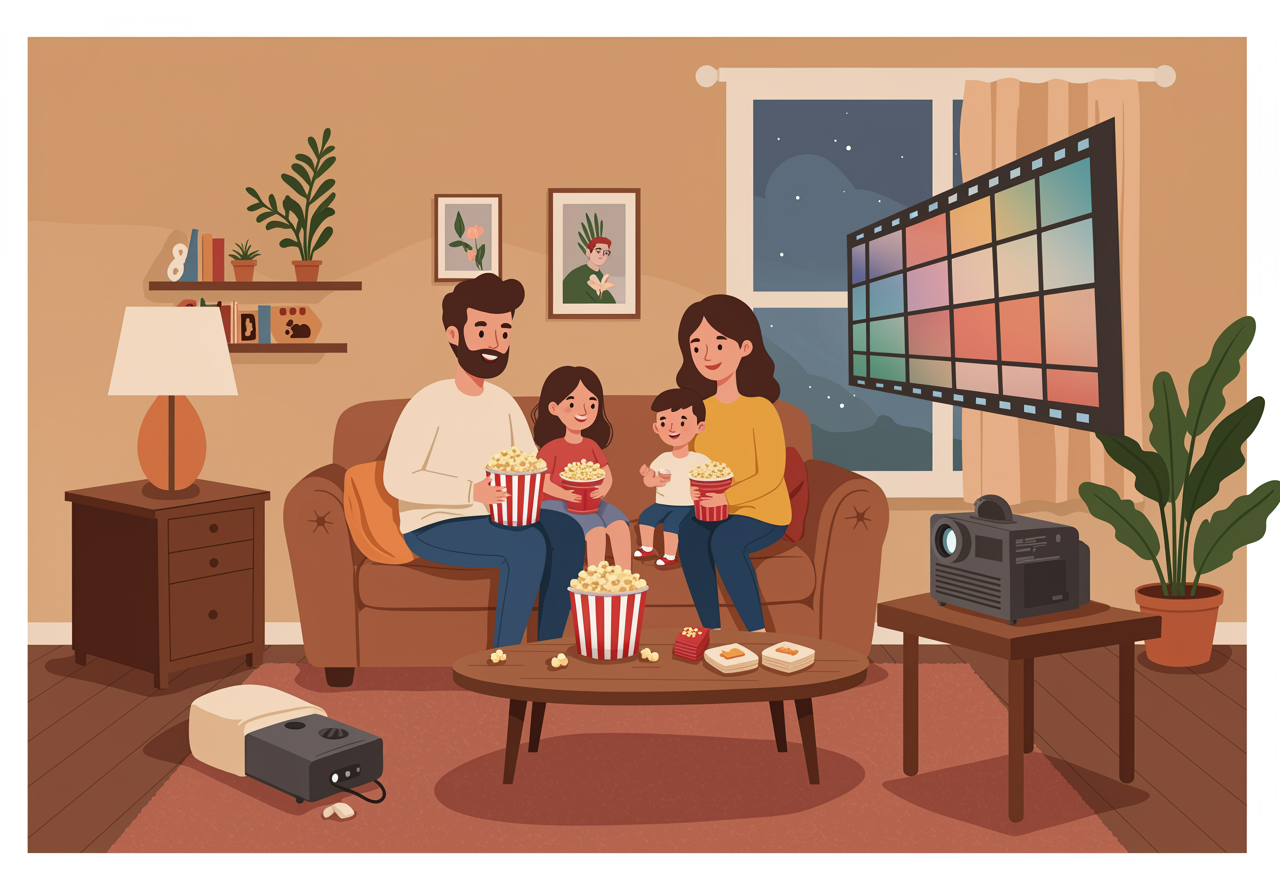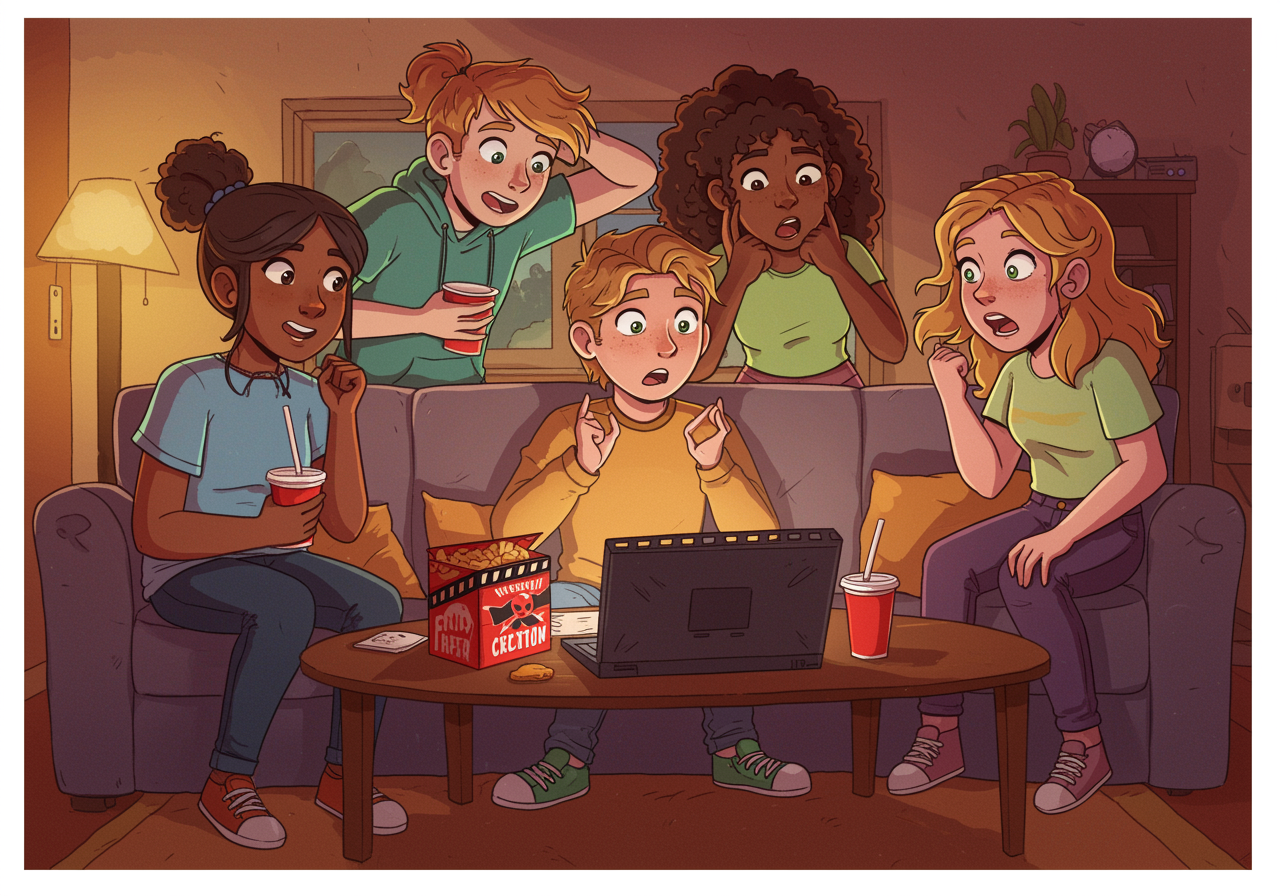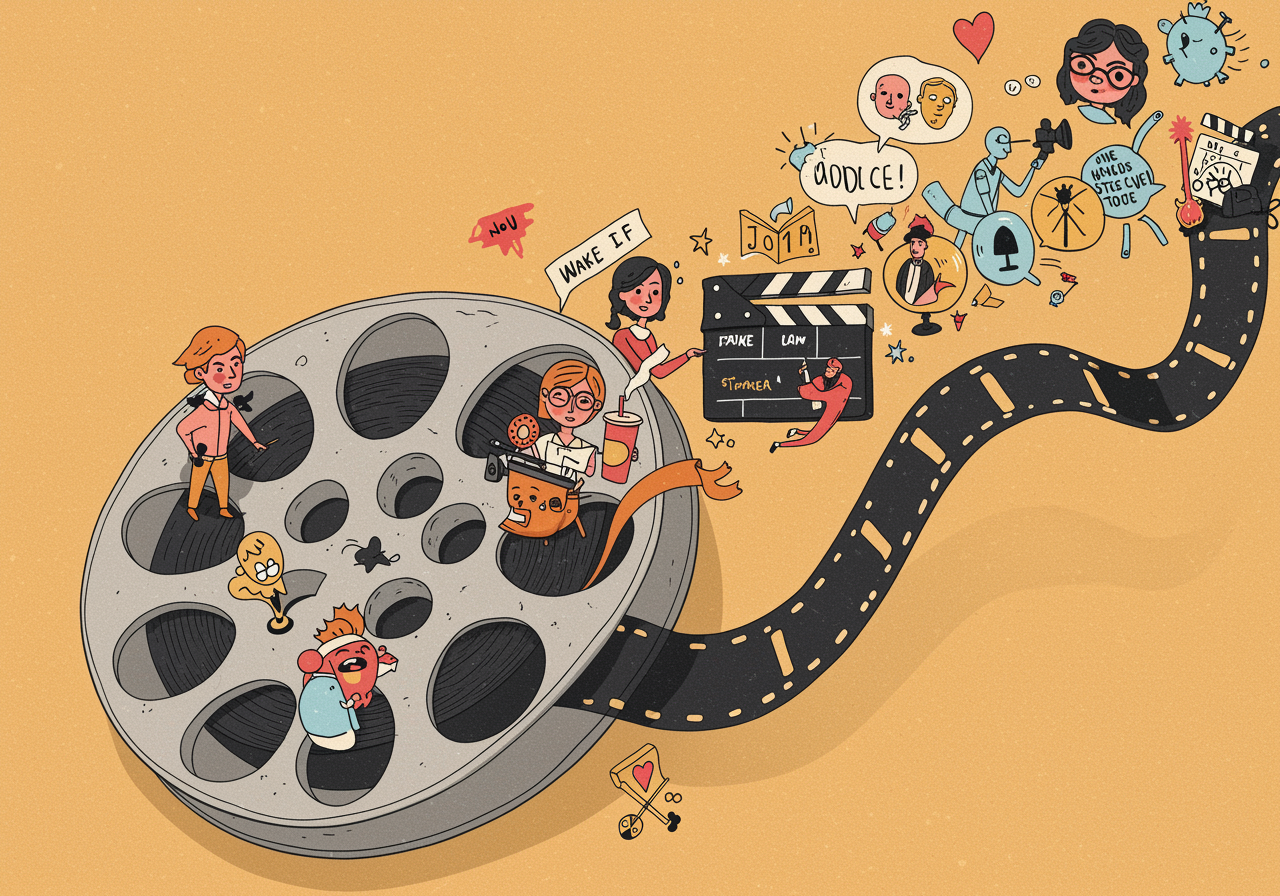Why Some Movies Make You Cry and Others Make You Cringe: The Secret Recipe for Movie Magic
Discover what makes audiences cheer, critics rave, and your family debate which movie to watch next!
Ever wonder why some movies become instant classics while others disappear faster than popcorn at movie night?
Overview
Think about your absolute favorite movie versus one that made you want to check your phone every five minutes. What's the difference? It's not just about flashy effects or famous actors – it's about whether the story grabs your heart and the message speaks to something real inside you. When families discuss what makes movies work (or totally flop), you're actually exploring how humans connect with stories, which is pretty much the foundation of all communication and art throughout history.

Understand in 30 Seconds
Get up to speed quickly
- Stories Are Emotional Highways: Movies succeed when their stories create an emotional highway straight to your heart – making you laugh, cry, or feel inspired.
- Messages Must Feel Real: The best movie messages don't lecture you; they show you something true about life that makes you think 'Yes, that's exactly how it feels!'
- Audiences vs Critics Think Differently: Regular moviegoers often love fun, feel-good stories, while critics might prefer complex themes and artistic techniques.
- Timing Matters Big Time: Sometimes a movie's message hits perfectly with what's happening in the world, making it way more powerful and successful.
Real Life Scenario
Situations you can relate to
Imagine your friend group trying to pick a movie for Friday night. Sarah votes for the superhero sequel because 'it looks awesome and the first one was amazing.' Jake wants the indie drama because 'it won awards and has deep meaning.' Maya suggests the comedy because 'we need to laugh after this crazy week.' Each person is responding to different parts of what makes movies work – spectacle, artistic merit, and emotional timing. Now think about this: the movie that wins the vote will probably be the one whose story and message best matches what your group needs in that moment. That's exactly how movies succeed in the real world – they have to match what audiences are feeling and what critics think is important at that exact time.

Role Play
Spark a conversation with “what if” scenarios
What if you were a movie studio executive deciding which script to turn into a $100 million movie?
- Role play: Take turns pitching movie ideas to each other, explaining not just the plot but what message it sends and why audiences would love it right now.
What if you were a movie critic who had to explain why a popular movie is actually terrible (or why a 'boring' movie is secretly brilliant)?
- Role play: Practice defending opposite opinions about a movie you both know, focusing on story structure and deeper meanings.
What if you could rewrite the ending of a movie that disappointed you?
- Role play: Pick a movie with a weak ending and brainstorm how changing the story's conclusion might have made it more successful with different audiences.
FAQs
Frequently asked questions people want to know
Why do some movies make tons of money but get terrible reviews?
Because audiences and critics often want different things! Audiences might love fun action and familiar characters, while critics prefer original stories and artistic techniques.
Can a movie be successful if nobody understands its message?
Usually not for long! Movies might do well opening weekend, but if the story doesn't make emotional sense, people stop recommending it to friends.
Do filmmakers plan their messages or do they just happen?
Both! Some directors carefully craft specific messages, while others focus on telling a good story and let audiences find their own meaning.
Examples in the Wild
See how this works day to day
- Top Gun: Maverick became a massive hit because its story about mentorship and legacy resonated with both older fans and new audiences (Box Office Mojo and Rotten Tomatoes data)
- Everything Everywhere All at Once won Best Picture despite being weird and confusing because its message about family love transcended cultural barriers (Academy Awards and critical reviews analysis)
- Disney's Turning Red succeeded with young audiences but divided parents due to its honest portrayal of adolescence and cultural identity (Audience surveys and social media analysis)
- The Super Mario Bros. Movie broke box office records despite mixed reviews because it delivered pure nostalgic fun that families craved (Entertainment industry trade publications)
In Summary
What you should know before you start
- Great movies connect emotionally first, then deliver their message through story rather than preaching
- Success depends on matching the right story with what audiences need at that specific moment in time
- Critics and regular moviegoers often value different things – artistic merit vs entertainment value
- The most successful movies find ways to satisfy both hearts (emotional story) and minds (meaningful message)
Pro-tip for Parents
You got this!
When discussing movies with your teen, avoid immediately asking 'What did you think the message was?' Instead, start with 'What part made you feel the strongest emotion?' This opens up natural conversation about how stories work their magic before diving into deeper meanings. If they loved a movie you thought was terrible (or vice versa), get curious about what spoke to them rather than dismissing their perspective.

Keep an Eye Out For
Find these examples in everyday life
- Award season announcements and winners – great opportunities to discuss what critics value versus popular appeal
- Movie trailers and teasers – analyze together what story elements and messages the marketing is highlighting
- Family movie nights where you can pause and discuss why certain scenes work or don't work emotionally
Explore Beyond
Look up these related research topics
- How social media and viral trends influence what stories become popular
- The difference between universal themes and cultural-specific messages in global entertainment
- How video games and TV shows use storytelling differently than movies to connect with audiences